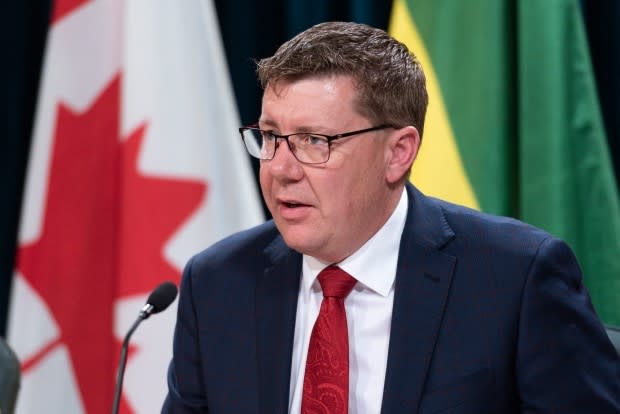The CFL season on the bubble: Why Moe money and the Pallister pitch won't save Canadian football in 2020
In a matter of months, COVID-19 has killed more than 600,000 people around the world, sickened another 14 million and brought the global economy to its knees.
The pandemic has reduced international travel to a trickle. It has forced major retail chains and bite-sized bistros into bankruptcy. It has transformed hugging and hand-shaking from benign forms of human contact into risky behaviour.
What the deadly virus can't seem to do, however, is eliminate a football rivalry between two smallish cities on the Canadian Prairies.
On Monday, the governments of Saskatchewan and Manitoba announced they've each made formal pitches for the Canadian Football League to play a truncated season in their respective capitals.
To make the case for Regina, Saskatchewan has offered Moe money. That is, Premier Scott Moe has pledged $3 million to the CFL for the privilege of hosting 60 games at Mosaic Stadium.
That's $500,000 more than Manitoba Premier Brian Pallister offered the CFL in a similar pitch for Winnipeg and IG Field. Nonetheless, the Manitoba capital boasts more hotel rooms and a more advantageous time zone, at least until the first Sunday of November, when static Saskatchewan catches up.
Both provinces boast a low prevalence of COVID-19. Both possess populations that care enough about the CFL to derive some sort of pride about serving as the hub for a series of games fans would not be able to watch in person.
The relative merits of Winnipeg and Regina, however, are entirely irrelevant if the CFL doesn't find some way to pay for pandemic-era pigskin.
Unlike larger professional sports leagues — namely the NHL, NBA, NFL and major-league baseball — Canadian football relies on ticket and concession sales for the bulk of its revenue, as opposed to broadcasting and sponsorship deals.
As Canadian Press football writer Dan Ralph reported on July 11, the CFL has asked the federal government for $42.5 million to stage some form of 2020 season. The league was hoping to land this money by this coming Thursday.
Without any federal or philanthropic help, it doesn't matter whether the gulf between Pallister's pitch and Moe's money is $500,000, five bunny hugs or a 500-millilitre jar of honey-dill sauce.

An abbreviated season isn't feasible without something to top up revenue from TSN and local radio broadcasters. And that may come as a relief to residents on both sides of the Manitoba-Saskatchewan border.
Roughly half the players in the Canadian Football League come from the United States, where the pandemic has been politicized and is raging out of control.
Manitoba's chief provincial public health officer, who has spent the past few months identifying the importation of the virus as a major threat, said he is unconcerned about CFL players heading north from COVID-19 hotspots such as Florida and Texas.
"There's going to be a period of mandatory self-isolation," said Dr. Brent Roussin, adding quickly he is not yet certain whether that period will be the standard 14 days required for other international travellers.
"There's going to be mandatory testing that's taking place in there. And then again it's going to be all taking place in a bubble. So it's really a plan that takes in the consideration of the health of Manitobans."
The bubble in question would encompass the hotels that would house CFL players, any CFL practice facilities and IG Field itself. It would also encompass any restaurants players visit, which would be required to close to other customers when CFL players are present, Roussin said.
As for the enforcement of the bubble, that would be up to the CFL.
"We're going to be holding them responsible for ensuring that the protocols are adhered to," Roussin said.

On one hand, this would not be all that different from the way Manitoba relies on the trucking industry, and to a far lesser extent the film industry, to police themselves during the pandemic.
On the other hand, professional athletes may not be as accustomed to the quarantine-like conditions that truckers and people who work on film sets routinely experience, even when there is no pandemic to fear.
How the CFL would police its bubble is uncertain. The league did not respond to a CBC News request for comment on Monday.
But again, this is an academic discussion without a means to pay for a 2020 CFL season. If no revenue source emerges by the end of this week, it may be safe to say the Canadian Football League bubble idea has burst.

 Yahoo Sports
Yahoo Sports 